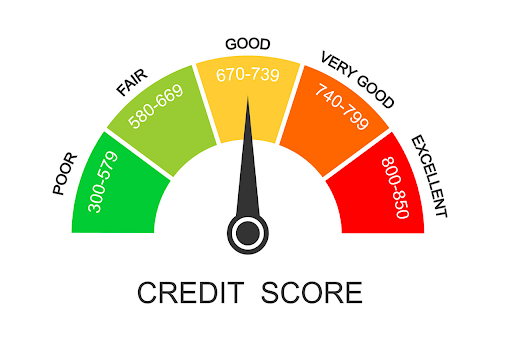In today’s financial landscape, your CIBIL score plays an essential role in determining your creditworthiness and eligibility for loans and credit products. With lenders increasingly reliant on credit scores for loan approvals, having a clear understanding of what a CIBIL score represents can help you make informed financial decisions. If you have a 730 CIBIL score, this article will explain what it signifies and how it affects approval for various loan products, including personal loan for low CIBIL score borrowers.
What is a CIBIL Score?
The CIBIL score is a three-digit number ranging between 300 and 900, generated by TransUnion CIBIL, based on your credit history, repayment behavior, and overall financial habits. It is one of the most widely used credit scores in India and acts as a measure of an individual’s creditworthiness.
A higher score generally indicates a better credit history and lower risk for lenders, while a lower score could be considered risky and impact your eligibility for loans and interest rates.
What Does a 730 CIBIL Score Mean?
A CIBIL score of 730 is considered a good credit score. It indicates that the borrower has been consistent in handling credit responsibly and may have a reliable repayment history. However, while it does not fall under the “excellent” category (which begins around 750 and above), a 730 score still positions you as a preferable borrower for most lenders. Here’s how a 730 CIBIL score impacts your financial prospects:
- Loan Approval Likelihood: With a score of 730, the chances of getting approved for loans are considerably high. Most banks and financial institutions consider this score to reflect moderate-to-low risk.
- Interest Rate Advantage: Borrowers with a 730 CIBIL score typically qualify for better interest rates than those with lower scores. While rates could vary depending on the lender, you’ll likely benefit from competitive pricing for loans.
- Access to Premium Credit Products: A 730 score may make you eligible for premium offerings such as higher loan amounts, flexible repayment terms, and exclusive benefits.
Although your score is good, improving it further to 750 or above can unlock additional benefits, allowing you to qualify for the best interest rates and credit opportunities.
Factors that Impact CIBIL Score
Understanding what determines your CIBIL score can help you maintain or improve it. The key factors include:
- Timely Repayments: Regular on-time payments of EMIs and credit card dues significantly impact your score.
- Credit Utilization Ratio: If you consistently use a large portion of your available credit, your score can suffer. Ideally, keep your utilization under 30%.
- Length of Credit History: A long and consistent credit history reflects responsible financial behavior.
- Number of Credit Applications: Applying for credit frequently signals desperation and can lower your score.
- Credit Mix: A healthy mix of secured (e.g., home loans) and unsecured debt (e.g., personal loans) improves your score.
Loan Eligibility with a 730 CIBIL Score
Let’s look at how a 730 CIBIL score might influence your eligibility for loans:
1. Personal Loans
Personal loans are popular for their flexibility and quick approvals. With a 730 CIBIL score, you’re in a favorable position to get approved for a personal loan without too much hassle. However, if your score dips below this threshold, obtaining a personal loan for low CIBIL score can become challenging and may result in higher interest rates or smaller loan amounts.
2. Home Loans
A CIBIL score of 730 is generally sufficient for home loans, and you might get competitive interest rates. Lenders prioritize borrowers with good scores and may also offer flexible repayment options for home loans.
3. Auto Loans
Auto loans are easier to secure with a 730 CIBIL score. Lenders view borrowers with this score as low-risk and are likely to extend financing options for vehicles.
4. Credit Cards
If you’re looking for a credit card, a 730 score can help you qualify for premium cards that come with higher limits and valuable rewards.
5. Business Loans
For entrepreneurs and small business owners, a 730 CIBIL score demonstrates financial reliability, improving your chances of obtaining business credit.
While most loan types are accessible with this credit score, you may still face restrictions on the highest-tier products reserved for those with scores above 750. If you want to access the best terms and conditions, working to improve your score further is advised.
Tips to Improve a 730 CIBIL Score
Though a 730 score is good, there’s always room for improvement. Here are actionable tips to push your score into the excellent category:
- Pay EMIs and Credit Card Bills On Time: Late payments can drastically lower your score. Make timely payments a priority.
- Lower Credit Utilization: Keep your credit card usage well below the available limit.
- Avoid Frequent Credit Applications: Excessive inquiries reflect poorly on your financial health and reduce your score.
- Dispute Errors in Your Credit Report: Review your credit report regularly and raise disputes for inaccuracies.
- Maintain a Balanced Credit Mix: A blend of secured and unsecured loans indicates financial discipline.
Improving your score can help you gain access to lower interest rates, higher loan amounts, and faster approvals, ensuring better financial opportunities in the long run.
What to Do If You Have a Low CIBIL Score?
Not all borrowers have the privilege of a good CIBIL score. If your score is lower and you struggle to secure loans, here’s what you can do:
- Look for Low-CIBIL Score Loan Options: Some lenders or fintech companies offer personal loan for low CIBIL score borrowers, though the loan amounts might be restricted, and interest rates could be higher.
- Opt for Secured Loans: Providing collateral may help you secure loans despite a low score.
- Work Toward Score Improvement: Begin working on improving your CIBIL score by making timely repayments and clearing out existing dues.
It’s possible to secure loans with a low CIBIL score, but you may need to accept less favorable terms initially. Over time, as your score improves, you can refinance these loans to more favorable conditions.
Benefits of Having a Good CIBIL Score
A good or excellent CIBIL score opens doors to financial privileges, some of which include:
- Quick Loan Approvals: A good CIBIL score makes the loan approval process faster, as lenders trust your repayment ability.
- Lower Interest Rates: Borrowers with good scores enjoy reduced interest rates on loans and credit products.
- Higher Credit Limits: A healthy score often entails higher loan amounts or credit card limits.
- Negotiation Power: Borrowers with a strong credit profile can negotiate better terms with lenders.
Conclusion
A 730 CIBIL score is a good indicator of creditworthiness, making you eligible for a wide range of loans, including personal, home, and auto loans, with competitive interest rates. Although it may not fall in the “excellent” category, the score is still sufficient to access important credit products. However, if you aim to unlock the best deals, further improving your score beyond 750 can be beneficial.
For those struggling with a lower score, options like pursuing specialized lenders who offer personal loan for low CIBIL score borrowers or opting for secured loans can bridge the gap until your score improves. Maintaining timely payments, managing credit responsibly, and regularly monitoring your credit history are key to keeping your score healthy and unlocking better financial opportunities.
By understanding what your 730 CIBIL score means for loan approvals and incorporating strategies to improve your score further, you can enhance your financial profile and pave the way for sustainable, long-term credit access.


